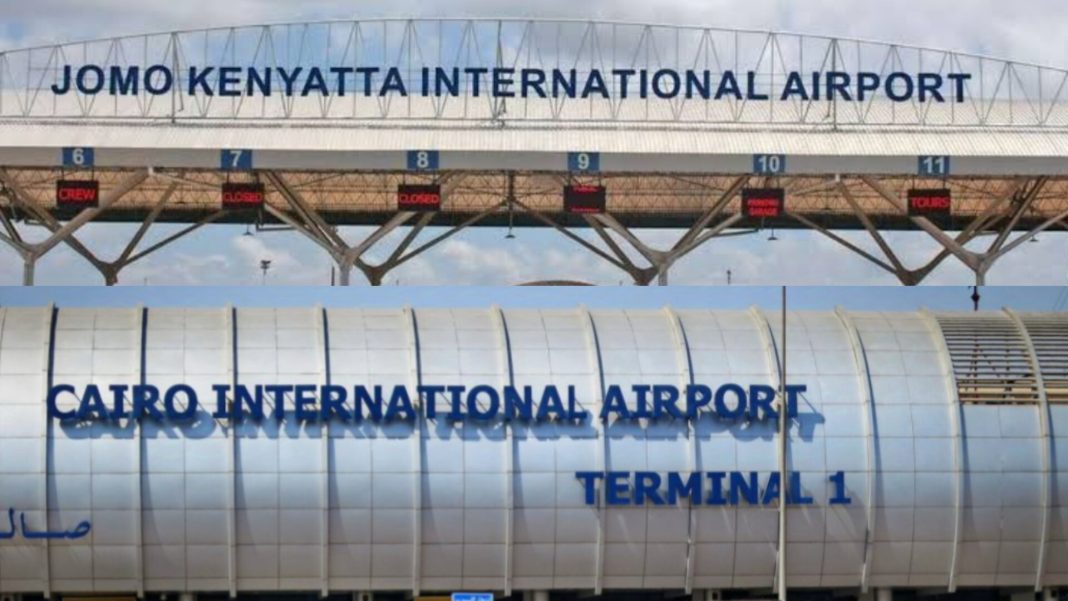In recent years, Kenya has witnessed a notable trend of multinational companies either exiting the market or significantly scaling back their operations.
From established brands to emerging players, various factors—including regulatory hurdles, economic instability, and shifting consumer preferences—have influenced these decisions.
In this article, WoA explore multinational companies that have either exited the Kenyan market or ceased operations, and reasons behind these exits.
1. GlaxoSmithKine (GSK)
GlaxoSmithKline (GSK) ceased its commercial operations in Kenya in 2023 after over six decades.
This decision was part of a broader strategy to shift to a distributor-led model for supplying medicines and vaccines, outsourcing these functions to third-party distributors.
However, GSK’s Nairobi plant remains operational under its consumer healthcare affiliate, Haleon, which produces brands like Sensodyne and Panadol.
2. De La Rue
De La Rue suspended its banknote printing operations in Kenya due to reduced demand and a challenging economic environment.
The decision affected its 25-year presence in the country, and is exploring future business opportunities but faces ongoing legal issues.
3. Nestlé
Nestlé exited the Kenyan market due to a challenging business environment characterized by high operational costs, increased competition from local brands, and regulatory hurdles.
The company cited rising taxes, particularly on fuel, and the depreciation of the Kenyan Shilling as significant factors affecting profitability.
As part of a broader reorganization in Africa, Nestlé said it would consolidate operations in other East African countries where conditions are more favorable.
4. Cadbury
Cadbury ceased all manufacturing operations in Kenya, retaining only marketing and distribution functions.
The decision affected approximately 300 employees who lost their jobs as the company shifts production to Egypt to improve supply chain efficiency.
Cadbury’s exit is part of a broader trend of multinational companies leaving Kenya due to high operational costs and a challenging business environment.
5. Reckitt Benckiser
Reckitt Benckiser officially exited the Kenyan market, marking a significant shift in its operational strategy.
The company had previously suspended production in the country due to escalating costs and has now begun selling its Nairobi assets, including a production facility.
Despite the exit, Reckitt will continue to serve the Kenyan market through third-party distributors instead of local manufacturing.
6. Bridgestone
Bridgestone exited the Kenyan market primarily due to declining sales and increased competition from cheaper imports.
The company faced significant challenges, including high tariffs on raw materials and escalating operational costs, which made local production unsustainable.
Bridgestone’s departure facilitated a new strategic partnership for Sameer Africa, its local partner.
7. Procter & Gamble
Procter & Gamble (P&G) exited the Kenya market, citing high operational costs, dollar shortages, and declining sales as primary reasons for this decision.
The exit will affect approximately 30 direct employees and contractors, as P&G shifts to a distributor importation model, eliminating local ground support for its brands like Pampers and Gillette.
This move follows similar exits from Nigeria and Argentina, reflecting broader challenges faced by multinationals in emerging markets due to unfavorable economic conditions.
8. Builders Warehouse
Builders Warehouse, a subsidiary of South Africa’s Massmart, exited the Kenyan market less than three years after its launch.
The closure of its Nairobi store, attributed to persistent financial losses and challenges in importing inventory due to stringent regulations, marks Massmart’s withdrawal from Kenya following the earlier exit of other retailers like Game and Shoprite.
The store officially closed on May 31, 2023, reflecting broader economic pressures in the region, including rising inflation and currency depreciation.
9. Colgate-Palmolive
Colgate-Palmolive ceased manufacturing operations in Kenya, transitioning to a trading model.
The decision followed the closure of its factory.
The company cited high production costs and an uncompetitive business environment as key factors for its exit, opting to source products from more favorable locations like Egypt instead.
10. Foschini Group
Foschini Group, a South African fashion brand, exited the Kenyan market after eight years of operation.
The decision was made during a general meeting on April 5, 2024, where liquidators were appointed to oversee the closure of its stores, including those in Nairobi’s Village Market and Junction Mall.
The exit is attributed to disappointing sales, high operational costs, and increased competition from local retailers amid a challenging economic environment in Kenya.
All claims against the company must be submitted to the liquidators by May 15, 2024.



